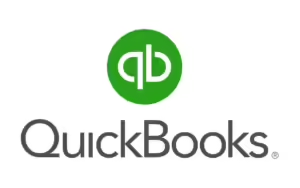Business management is a huge task filled with responsibilities and actions that need to be taken to ensure a company’s success. In this competitive marketplace, managing finances can be challenging and a daunting task as one needs to be compliant, well positioned and accurate with records and bookkeeping activities. An e-commerce business requires strategic planning, accurate bookkeeping and precise records to ensure the success of any organization or business. Hence, in this guide, we will talk about some tips and tricks necessary for bookkeeping that are needed for e-commerce platforms.
The Importance of eCommerce Bookkeeping
E-commerce bookkeeping services are essential for managing financial data and records accurately. Big businesses that have e-commerce platforms need to look after many crucial aspects of stores such as tracking sales, keeping check on inventory, customer transactions and all expenditures. Managing all the aspects of e-commerce requires utmost precision and accuracy that ensures tax compliance, provides a clear view of finances and maintains a steady cash flow.
But, would it be possible without a solid bookkeeping system? Absolutely no! Managing a big e-commerce business can result in various errors, fines or legal troubles. But, having a well-organized approach can help you keep track of everything all in one place. It can not only help you maintain control over finances but also assist you in gaining deeper insights into our business performance.
Key Components of eCommerce Bookkeeping

Revenue tracking
The first part of any bookkeeping service is to keep track of various sources such as marketplaces ( Amazon, Flipkart, eBay), other websites and other channels. It’s crucial to track all the transactions and record them so that every sale is precisely matched citing the platform, currency and compliance with tax obligations.
Expenses management
If you are running an e-commerce store, you most probably already know that managing an e-commerce platform is not an easy task. Managing all the expenses such as shipping, advertising charges, purchases and software subscriptions in one place is a daunting and time-consuming process. Plus, you also need to categorize and keep all the expenses recorded accurately to understand your budget, expenses and spending patterns so that you can limit unnecessary costs.
Inventory management
The third necessary component of any business is to handle its inventory and make sure every item is accessible to users on time. Unlike traditional retail stores, where you keep checking on all the items manually, an e-commerce platform is a little more complex. The bigger the inventory, the bigger the task of record-keeping. You need to constantly monitor the inventory, make yourself aware of the stocks, avoid overflow and find any losses or errors. For precise inventory management, you can use tools and resources that can be integrated into the bookkeeping systems to streamline all the operations.
Tax compliance
Tax rules and regulations vary in different regions and areas. You need to be aware of precise laws and regulations by tracking the taxes that you own in different places. With online sales, your business runs in several areas and regions, so you are liable for compensation and taxation according to that place. One should follow the right practices and laws to ensure that business remains in good standing and there are no legal complications ever.
Bank reconciliation
In every business, your cash flow should not be more than your earnings. They should be properly aligned. Any irregular transaction or discrepancies can be an indicator of fraudulent activities. Bank reconciliation becomes necessary in this case and accuracy in keeping the financial documents is of utmost importance.
Benefits of Using eCommerce Bookkeeping Services:
There are many businesses and companies that can manage their own bookkeeping system in place. However, many still fall behind due to insufficient resources and teams. That’s why it’s necessary to hire a professional e-commerce bookkeeping service that can help you automate the process and make things easy for you to implement. Here are some advantages of hiring one –
Automation
The first task is to keep all the data accurate and eliminate all the errors that might be possible. But, if done manually, there might be many errors plus loss of data. That’s where automation works to keep all the information accurate and provide businesses with real-time financial insights. It can also help you sync your sales platforms, reduce the chances of errors and reduce the working hours tremendously.
Tax Expertise
The second advantage of acquiring a professional is to help you understand the intricacies of sales tax, VAT and other international laws. By having an expert, you can make sure that all the laws and regulations are followed without any errors or loopholes.
Comprehensive financial reporting
Another factor that makes it necessary to hire an experienced firm is to get comprehensive data on spending, inventory turnover, profit margins, and other aspects of business. You may use these insights to create data-driven decisions that will lead to growth and profits for your organization.
Choosing the Right Bookkeeping Software:
It’s crucial to select basic bookkeeping software that meets your company’s requirements. With the correct software, you may save time, cut down on mistakes, and streamline your bookkeeping procedures. Here are a few simple yet best eCommerce bookkeeping software solutions for businesses :
QuickBooks

One of the most popular choices for accounting software is QuickBooks. It has features specifically designed for e-commerce, such as compatibility with e-commerce systems like Shopify and Amazon. It is perfect for online enterprises because of its capabilities for tracking inventory and sales tax.
Xero

Xero offers user-friendly cloud-based accounting software. It has automatic invoicing, simple integration with several eCommerce platforms, and support for multi-currency transactions—all of which are very helpful for sales to international markets.
Zoho Books

If you are looking for budget-friendly options, you can go for Zoho Books, which has automation capabilities that make bookkeeping easier. It allows for multi-currency compatibility, and payment gateway integration, and streamlines inventory monitoring for small and medium-sized eCommerce enterprises.
Best Practices for eCommerce Bookkeeping
Track Every Transaction
Make sure you have documentation for each and every sale, and return along with expenses. Establish a standardized procedure for monitoring every transaction to make sure no amount is missed or expenses are ignored.
Separate Accounts for Personal and Business Use
Keeping your personal and corporate expenses apart will make accounting easier. Accurate and transparent accounting requires the opening of a specialized company bank account.
Monitor Financial Reports more often
The financial health of your eCommerce accounting firm is clearly shown by financial statements including balance sheets, cash flow statements, and profit and loss (P&L). Examining these reports regularly can help you see patterns, recognise possible problems, and maintain your company’s direction.
Outsource When Necessary
Lastly, consider outsourcing as your company expands and your bookkeeping requirements become more complicated. Your funds will be managed skilfully if you use eCommerce bookkeeping services or hire a professional accountant for eCommerce business, freeing you up to focus on expanding your company or on other tasks.
Conclusion
Although handling an eCommerce company’s finances is not simple, it may be made a lot easier with the correct resources and expertise. The most important thing is to be proactive and organized, regardless of whether you choose to use eCommerce accounting services or manage the accounts yourself. You may position your eCommerce company for long-term success by keeping correct records, adhering to tax laws, and using basic accounting software. For further specialized guidance or assistance with your bookkeeping requirements, always consider a certified accountant for your e-commerce store. As your company expands, this investment will pay off, giving you the strongest possible financial foundation.





